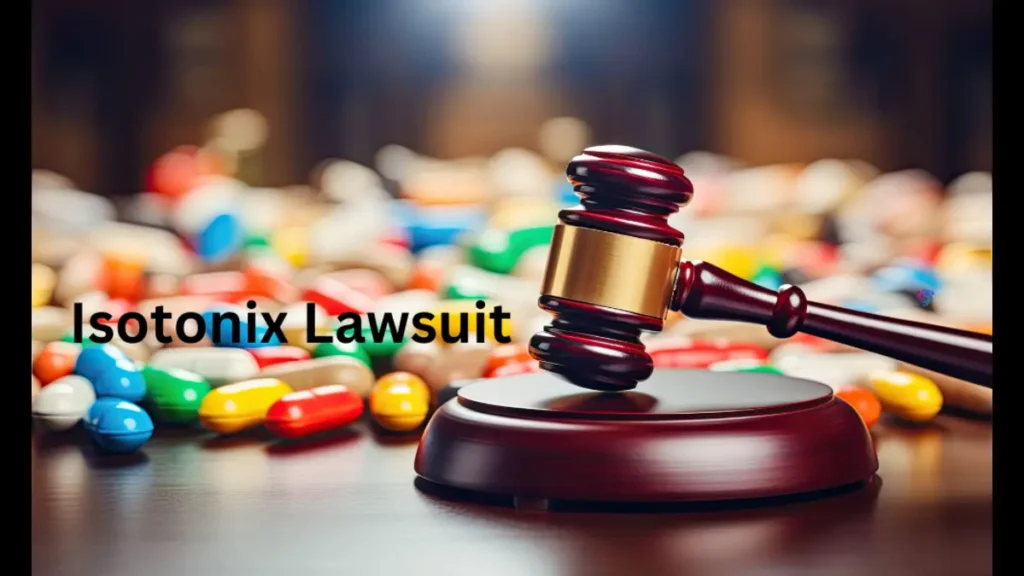Introduction to the Isotonix Lawsuit
The Isotonix lawsuit has captured the attention of health enthusiasts, consumers, and legal experts alike. As a leading name in the nutritional supplement industry, Isotonix prides itself on delivering high-quality products that promise optimal absorption and wellness benefits. However, recent developments have raised questions about their marketing practices and product efficacy.
With key players embroiled in this legal battle, many are left wondering what exactly is at stake. Are these supplements truly as beneficial as advertised? Or are there deeper issues lurking beneath the surface? Join us as we dive into the details of the Isotonix lawsuit—exploring who’s involved, what claims have been made, and how it all affects loyal customers and distributors.
Key Players Involved in the Lawsuit
The Isotonix lawsuit has attracted significant attention, primarily due to the key players involved. At the forefront are former customers who allege deceptive marketing practices. Their experiences have sparked a wave of scrutiny surrounding the brand’s claims.
On the other side stands Market America, Isotonix’s parent company. They vehemently deny all allegations and argue that their products adhere to stringent regulations and standards. This clash between consumer voices and corporate defense creates a dynamic legal battle.
Additionally, industry experts are monitoring developments closely. Their insights often reveal broader implications for health supplement marketing as a whole.
Legal representatives from both sides play pivotal roles in shaping arguments and strategies throughout this ongoing case, ensuring that every detail is meticulously examined in courtrooms across various jurisdictions.
Insights into Isotonix’s Products and Marketing Strategies
Isotonix has carved a niche in the health and wellness market with its unique product offerings. Their standout feature is the delivery system, which claims to enhance absorption through an isotonic solution. This promises faster results compared to traditional supplements.
The marketing strategy heavily leans on science-backed claims. Isotonix often highlights clinical studies and research that support their formulations, aiming to build consumer trust. They also leverage social media influencers to reach broader audiences.
Direct selling plays a crucial role in their distribution model, creating personal connections between distributors and customers. This approach fosters loyalty but can complicate perceptions of legitimacy when legal issues arise.
Their branding emphasizes quality and efficacy, appealing primarily to health-conscious consumers willing to invest in premium products. However, as the lawsuit unfolds, these strategies are being scrutinized more intensely than ever before.
Claims Against Isotonix and Their Response
The Isotonix lawsuit centers around several claims made by consumers and regulators. Many allege that the products do not deliver the promised health benefits. These allegations have raised eyebrows, particularly regarding the effectiveness of their dietary supplements.
Isotonix’s marketing strategies also come under scrutiny. Critics argue that some promotions may mislead customers about product efficacy. This has fueled concerns over transparency in advertising practices.
In response, Isotonix has firmly defended its products. The company emphasizes rigorous testing and quality control processes to ensure safety and effectiveness. They assert that customer satisfaction remains a priority.
Legal representatives for Isotonix are actively addressing these claims in court, aiming to clarify any misconceptions surrounding their offerings. The ongoing dialogue sheds light on broader issues within the supplement industry, prompting discussions about regulatory standards and consumer rights.
Impact on Customers and Distributors
The Isotonix lawsuit has left many customers feeling uncertain about the products they have trusted. Questions regarding safety and efficacy swirl in their minds, creating an air of skepticism around the brand.
For distributors, this legal battle poses challenges as well. They rely on product credibility to sell effectively, and any negative publicity can significantly affect their livelihoods. Many are now cautious when discussing Isotonix with potential clients.
Some loyal users remain committed to the brand despite the controversy, while others are reconsidering their loyalty. The divide among consumers is palpable; trust is a fragile thing that can be easily broken.
Distributors are also navigating changing conversations within their networks. They must balance promoting Isotonix’s benefits against growing concerns from customers who seek clarity and reassurance amid ongoing developments in the case.
Updates on the Current Status of the Lawsuit
As of October 2023, the Isotonix lawsuit remains a focal point for both legal analysts and interested consumers. The proceedings have seen several developments that keep stakeholders on their toes.
Recently, court documents revealed new evidence related to product claims. This has sparked discussions regarding the integrity of marketing practices used by Isotonix.
Moreover, mediation efforts between parties are reportedly underway. Both sides seem open to negotiations that could potentially lead to an out-of-court settlement.
This ongoing situation raises questions about the future direction of Isotonix’s operations and how it will impact its loyal customer base and distributors alike.
Industry experts continue to monitor these updates closely, as they might influence regulatory scrutiny in the health supplement industry moving forward.
Conclusion: Lessons Learned from the Isotonix Lawsuit
The Isotonix lawsuit has shed light on the complex interplay between product claims, consumer trust, and corporate responsibility. Throughout this legal journey, several important lessons emerge for both consumers and companies in the health and wellness industry.
First, transparency is critical. Companies must provide clear information about their products’ ingredients and benefits to maintain customer trust. Consumers deserve to know what they are putting into their bodies.
Second, marketing strategies need scrutiny. While creative campaigns can attract attention, they should not mislead or exaggerate potential benefits. Ethical marketing fosters a healthier relationship between brands and consumers.
Third, legal challenges highlight the importance of regulatory compliance in product development. Adhering to guidelines not only protects customers but also helps businesses avoid costly litigation down the line.
The case serves as a reminder that consumers hold power through their choices. Informed decision-making can influence how companies operate moving forward.
As developments unfold in this ongoing saga, keeping an eye on these insights will be crucial for anyone involved with Isotonix or similar brands within the health sector.
you may also read

